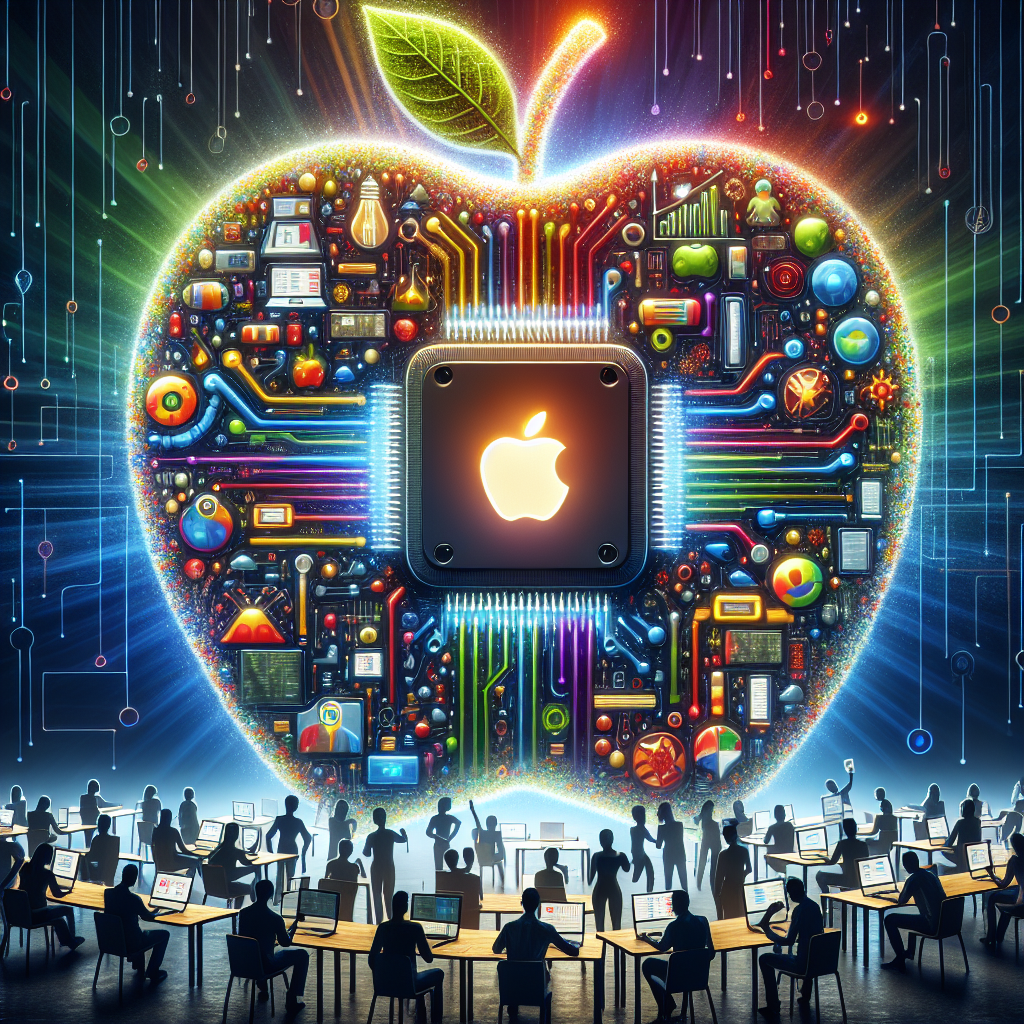According to a recent report on Startup News, Apple is purportedly gearing up to challenge OpenAI’s ChatGPT with an initiative known as the ‘In-House Answers Team.’ This new strategic direction underscores the tech giant’s ambition to carve out a significant presence in the burgeoning field of artificial intelligence, particularly in conversational AI technologies.
The formation of this new team at Apple heralds a potential shift in the company’s approach to AI, positioning it as a direct competitor to established players like OpenAI and Google. Industry insiders speculate that this move is part of Apple’s broader strategy to integrate more sophisticated AI-driven functionalities into its ecosystem, enhancing user interaction with its devices and services.
The ‘In-House Answers Team’ is designed to focus on developing natural language processing tools that can generate conversational responses akin to those of ChatGPT. This initiative not only mirrors the capabilities of existing AI models but also signals Apple’s commitment to maintaining a competitive edge in AI innovation. Beyond just competing with ChatGPT, the team aims to surpass it by leveraging Apple’s proprietary technologies and vast data ecosystem to create a more integrated and user-oriented product.
However, despite these ambitions, Apple is treading cautiously, mindful of the ethical and privacy concerns associated with AI. The company, known for its stringent privacy policies, is likely to emphasize building an AI system that aligns with its established values. This would ostensibly give it an edge with consumers increasingly concerned about data privacy.
The strategic implications of Apple’s new venture are profound not only for the company but also for the broader tech industry. By entering the AI chat space, Apple is not just expanding its product portfolio but is also reinforcing its role as an innovator in secure and privacy-focused technology.
Moreover, this development could potentially initiate a series of innovations and adoptions across various sectors including education, healthcare, and customer service, where conversational AI can significantly enhance efficiency and user experience. The company’s endeavor might also prompt its competitors to accelerate their own AI initiatives, potentially leading to a rapid evolution of AI technologies.
In conclusion, Apple’s decision to form the ‘In-House Answers Team’ could be a game-changer in the AI space, raising the bar for what consumers can expect from technology giants in terms of innovative, ethical, and consumer-friendly AI offerings. As this initiative progresses, it will be crucial to monitor its integration with Apple’s broader ecosystem and its impact on the competitive dynamics of the AI industry.



